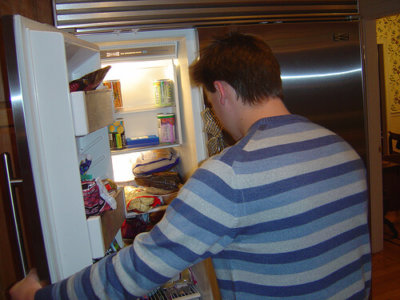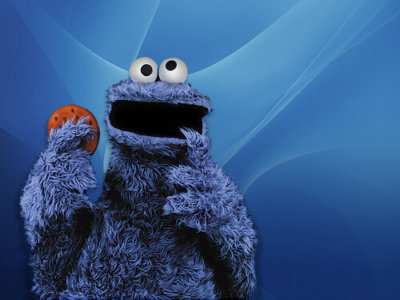Compulsive Eating – Is This Your Secret Issue?
by Andrea M. Darcy
Comfort eating, a hereditary sweet tooth, a bad metabolism… hide it behind any name you want.
If your eating is not just about hunger and energy, but a habit you use to distract yourself from life? Then you might have a problem with compulsive eating.
Myths about compulsive eating
What is the truth you need to know about compulsive eating? And what myths have you fallen for that might be holding you back from stopping the cycle?
1.You have to be overweight to suffer from compulsive eating.
You just have to constantly eat more than your body needs for reasons other than hunger. Some people combine compulsive eating with purging, bouts of fasting, or with overexercising, so their addiction to food is unnoticeable except to those who know them well.
2. If you aren’t gaining weight, compulsive eating is fine.
It is hard on the body and can cause health problems whether or not it causes weight gain. It is also extremely hard on your self-esteem and emotional wellbeing.
3. You have to always have been a compulsive eater to now have a problem.
Eating issues do often start in childhood or adolescence. But you might not have been an overeater. Instead, you might have been a very picky eater as a child who would only eat certain foods, which is the other side of the compulsive coin.
4. Compulsive eating isn’t a big deal.
Compulsive eating is an addiction like any other tool of avoidance. Your drug of choice is food.
[What is it like living with a problem with compulsive eating? Read our case study on “The Truth About Overeating” to learn more.]
What are the signs you have a real issue with compulsive overeating?
So how can you be sure that compulsive overeating is really your problem?

By: Britt Selvitelle
You eat even if you are not hungry. And you continue to eat even if you feel full.
(Although you might also by now have no sense of what hungry and full feel like, if you are a binge eater or nonstop snacker).
You turn to eating if you feel emotional.
You eat when you are sad, tired, disappointed, angry, or lonely. Or when someone lets you down, or when a comment someone says makes you feel ‘less than’. And when you feel overwhelmed by an experience at work. You also eat when you are ‘bored’.
You might even turn to food if you feel too excited or too happy.
It’s as if food is your way of not letting emotions get out of control.
A compulsive eating problem is not just due to a bout of stress, or occasional upsets. This is not a ‘half a pint of ice cream on Saturday night’ kind of issue. Your compulsive eating has been an integrated part of your life that you can’t control for several months (or years, or decades).
The feeling you have when you eat is one of being out of control.
When you are finished your bout of compulsive eating, you feel bad.
You feel shame, disgust, guilt, and/or feel disgusted with yourself.
You hide your problem from other people.
Addictions thrive off secrecy.
You might think about food all the time.
If you aren’t eating, you are thinking about what you will next eat, how you will get hold of it, even how you will hide it from others.
You have physical symptoms that are actually connected to your compulsive eating.
that don’t have to just include those caused by being overweight. Physical symptoms can include:
- fatigue and headaches
- foggy thinking
- energy peaks and crashes
- upset stomach and irritable bowel syndrome (IBS).
And these psychological symptoms
- mood swings and irritability
- low moods or depression
- low self-esteem.

By: Kevin Ballard
Is compulsive eating an ‘eating disorder’?
Compulsive eating is not its own ‘official’ eating disorder per se. But a diagnostic tool like the DSM would include compulsive eating under the category called ‘otherwise specified feeding and eating disorders‘ (OSFED).
Recently, however, binge eating was made into it’s own official disorder. If your compulsive eating takes the form of binges then you might be given this diagnosis. The other eating disorders that can involve bouts of compulsive eating are bulimia and night eating disorder.
Remember, a diagnostic term is merely a short hand created by medical health professionals to communicate issues more easily.
A label for your eating issue can be interesting and helpful. But what is more important is to recognise if you have a problem with disordered eating. And if so, seeking support, regardless of the ‘category’ you fall under.
Why do I have a problem with compulsive eating?
Compulsive eating is like any other addiction. It helps you escape from pain and uncomfortable thoughts and feelings.
Perhaps you instead just feel empty inside, which is the sensation repressed emotions creates. Eating can be the one thing that makes you briefly feel alive, with the taste and the textures being momentarily comforting.
If you are overeating there will likely be issues from the past or present (or both) that are bothering you. When your focus is on food, you don’t have to think. Overeating causes a numb, even sleepy feeling that means thinking and feeling is blocked for up to several hours after.
Like all addictions and eating disorders, self-esteem will be an issue. Somehow, somewhere inside, you don’t feel good about yourself.
Emotional problem, or physical problem?
Is overeating only an emotional condition, or is it possible it can be a physical illness? If your issue with overeating is recent and you are gaining or losing weight quickly, it’s a good idea to have a physical checkup with your GP. He or she can check things like your thyroid and hormone levels, to see if there are any other issues driving your overeating.
Can compulsive eating be a physical addiction? It can definitely help create one. Emotional duress can lead to overeating. And overeating can then possibly lead to addiction to sugar and additives, which can then lead to more overeating.
What is the danger of ignoring compulsive eating?
The low self-esteem that compulsive eating thrives off of and maintains often leads to depression. Depression can be a serious condition, with some experiencing suicidal thinking.
[Not sure if you are depressed? Read our comprehensive Guide to Depression for more info.]
Even if you are not suffering the side effects of being overweight, overeating is hard on internal organs such as the liver and can also deplete your immune system. As well as constant colds and flus, you might in the long term be increasing your chance for serious disease.
What should I do if I can’t stop my compulsive eating habit?
We all need to eat, so you can’t just ‘cut out’ eating. This can make food addiction a difficult habit to break.
Support is usually required. You might want to start with self-help books and research, or connecting with others who have similar issues via things like online forums.
It is a good idea to seek professional support in the form of a coach, counsellor, or psychotherapist who specialises in eating disorders. This is especially true if you think your compulsive eating is connected to a deep self-esteem issue or to childhood trauma. A good mental health professional can help you unravel the emotions that drive you to overeat and help you see yourself in a new, more supportive light.
Harley Therapy connects you with highly trained and experienced eating disorder therapists in London, UK, or worldwide via online therapy.
 Andrea M. Darcy is a mental health and wellbeing expert and personal development teacher with training in person-centred counselling and coaching, as well as a popular psychology writer. She was a compulsively picky eater as a child followed by a compulsive emotional eater as an adult, and had to teach herself to change the pattern. Follow her on Instagram for encouragement and useful life tips @am_darcy
Andrea M. Darcy is a mental health and wellbeing expert and personal development teacher with training in person-centred counselling and coaching, as well as a popular psychology writer. She was a compulsively picky eater as a child followed by a compulsive emotional eater as an adult, and had to teach herself to change the pattern. Follow her on Instagram for encouragement and useful life tips @am_darcy





